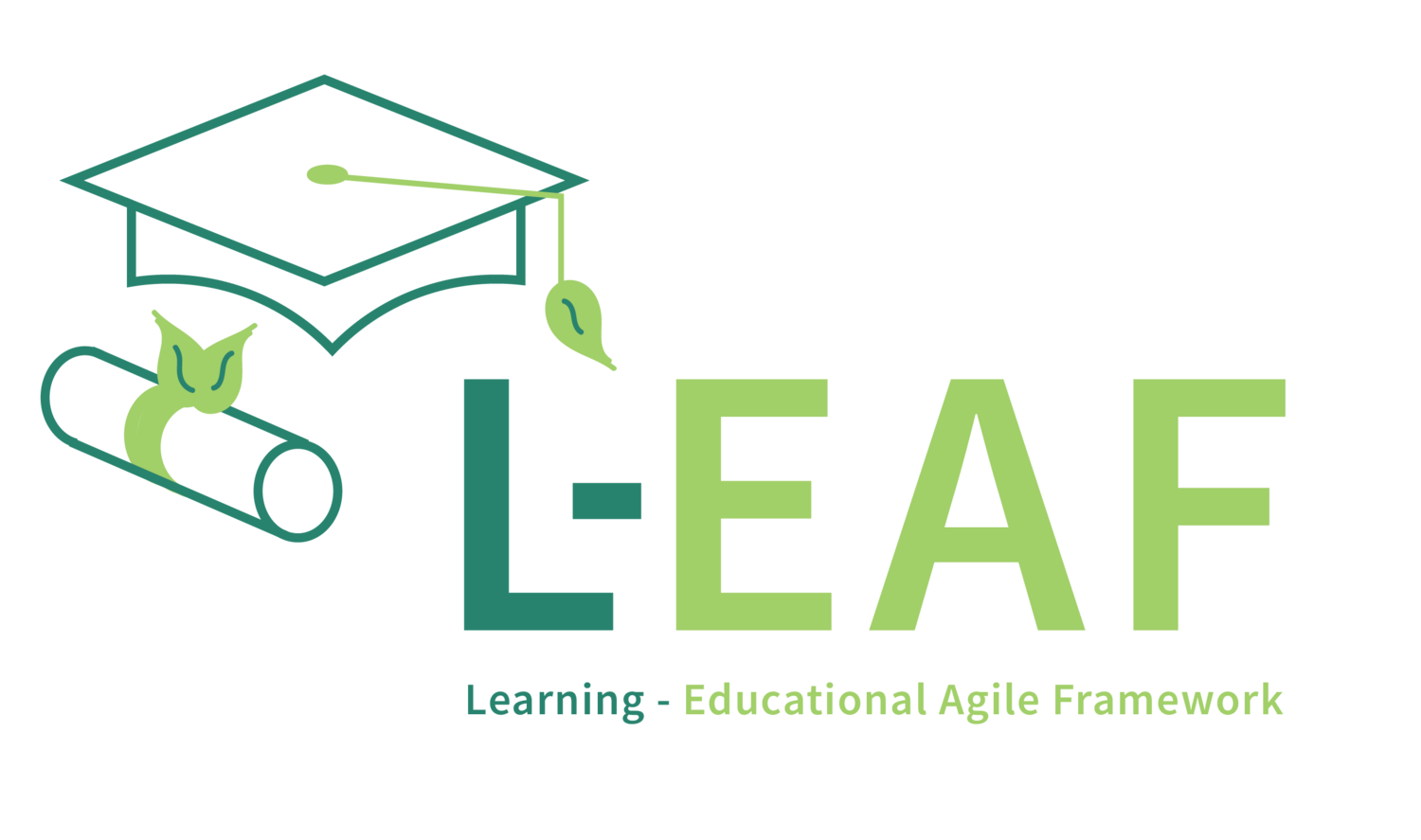Skill Badges and Certification Skills
In our journey to redefine and explore a common sense approach to scaling Educational Agility, we have crafted skill badges to help our students keep track of their learning progress. We have outlined the skill levels and what they encompass to layout their educational journey.
-
Critical Thinking involves the capacity to think clearly and rationally, understanding the logical connection between ideas. Students learn to systematically evaluate information and arguments, identify biases and assumptions in their own ideas and the ideas of others, and develop well-founded conclusions. This skill is essential for problem-solving, decision-making, and synthesizing complex information in a coherent and logical manner. Throughout the L-EAF Lab learning experience, students engage in exercises that challenge their assumptions and encourage them to consider alternative perspectives, ultimately fostering a deeper understanding and improved reasoning abilities.
-
Understanding and analyzing complex [cut because not all systems encountered in the Lab are complex] systems by recognizing patterns and interrelationships within them.
Systems Thinking is the ability to comprehend and manage complex systems by recognizing patterns and understanding how different components interact within the whole. Students learn to see beyond individual elements of a system and focus on the broader context, identifying how changes in one part of a system can impact others. This skill is crucial for strategic planning, problem-solving, and decision-making in dynamic and interconnected environments. In the L-EAF Lab, students are exposed to real-world scenarios where they apply systems thinking to analyze and optimize processes, making informed decisions that consider the entire ecosystem.
Systems Thinking equips students with the ability to visualize, navigate and manage various types of systems complexity [cut], leading to more effective and sustainable solutions. By understanding the interconnectedness of systems, students can anticipate consequences and drive positive change.
-
Description text goes here
Collaboration
The ability to manage the collaboration, communication, transparency, dependencies, and negotiations needed to solve complex problems as part of an agile team
Core Badge
Advanced Badge
Risk Management
The ability to identify and manage the risks to the team plan, as a team member.
Core Badge
Advanced Badge
Retrospection
The ability to manage the collaboration, communication, transparency, dependencies, and negotiations needed to solve complex problems as part of an agile team
Core Badge
Advanced Badge
System Thinking
Systems Thinking is the ability to comprehend and manage complex systems by recognizing patterns and understanding how different components interact within the whole. Students learn to see beyond individual elements of a system and focus on the broader context, identifying how changes in one part of a system can impact others. This skill is crucial for strategic planning, problem-solving, and decision-making in dynamic and interconnected environments. In the L-EAF Lab, students are exposed to real-world scenarios where they apply systems thinking to analyze and optimize processes, making informed decisions that consider the entire ecosystem.
Value Statement: Systems Thinking equips students with the ability to visualize, navigate and manage various types of systems complexity [cut], leading to more effective and sustainable solutions. By understanding the interconnectedness of systems, students can anticipate consequences and drive positive change.
Core Badge
Advanced Badge
Refinement
The ability to manage the collaboration, communication, transparency, dependencies, and negotiations needed to solve complex problems as part of an agile team
Core Badge
Advanced Badge
Demonstration
The ability to manage the collaboration, communication, transparency, dependencies, and negotiations needed to solve complex problems as part of an agile team
Core Badge
Advanced Badge
Critical Problem Solving
The ability to manage the collaboration, communication, transparency, dependencies, and negotiations needed to solve complex problems as part of an agile team
Core Badge
Advanced Badge
Team Agreements
The ability to collaborate on a team agreement.
Core Badge
Advanced Badge
Planning
The ability to manage the collaboration, communication, transparency, dependencies, and negotiations needed to solve complex problems as part of an agile team
Core Badge
Advanced Badge
Leadership
The ability to manage the collaboration, communication, transparency, dependencies, and negotiations needed to solve complex problems as part of an agile team
Core Badge
Advanced Badge
Coaching
The ability to manage the collaboration, communication, transparency, dependencies, and negotiations needed to solve complex problems as part of an agile team
Core Badge
Advanced Badge
Process Improvement
The ability to manage the collaboration, communication, transparency, dependencies, and negotiations needed to solve complex problems as part of an agile team
Core Badge
Advanced Badge
System Improvement
The ability to manage the collaboration, communication, transparency, dependencies, and negotiations needed to solve complex problems as part of an agile team
Core Badge
Advanced Badge
Project Management
The ability to manage the collaboration, communication, transparency, dependencies, and negotiations needed to solve complex problems as part of an agile team
Core Badge
Advanced Badge
Dependency Management
The ability to manage the collaboration, communication, transparency, dependencies, and negotiations needed to solve complex problems as part of an agile team
Core Badge
Advanced Badge
